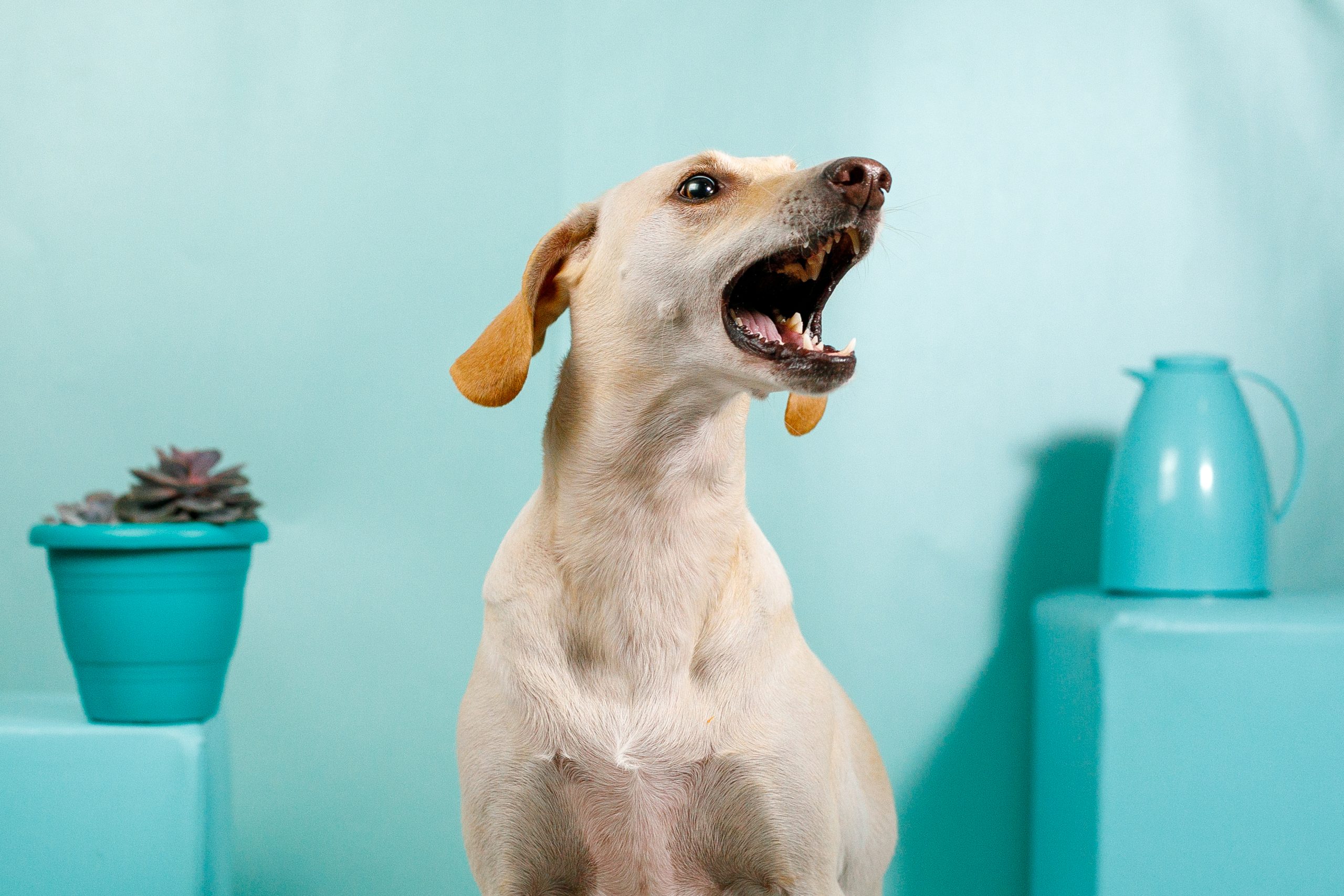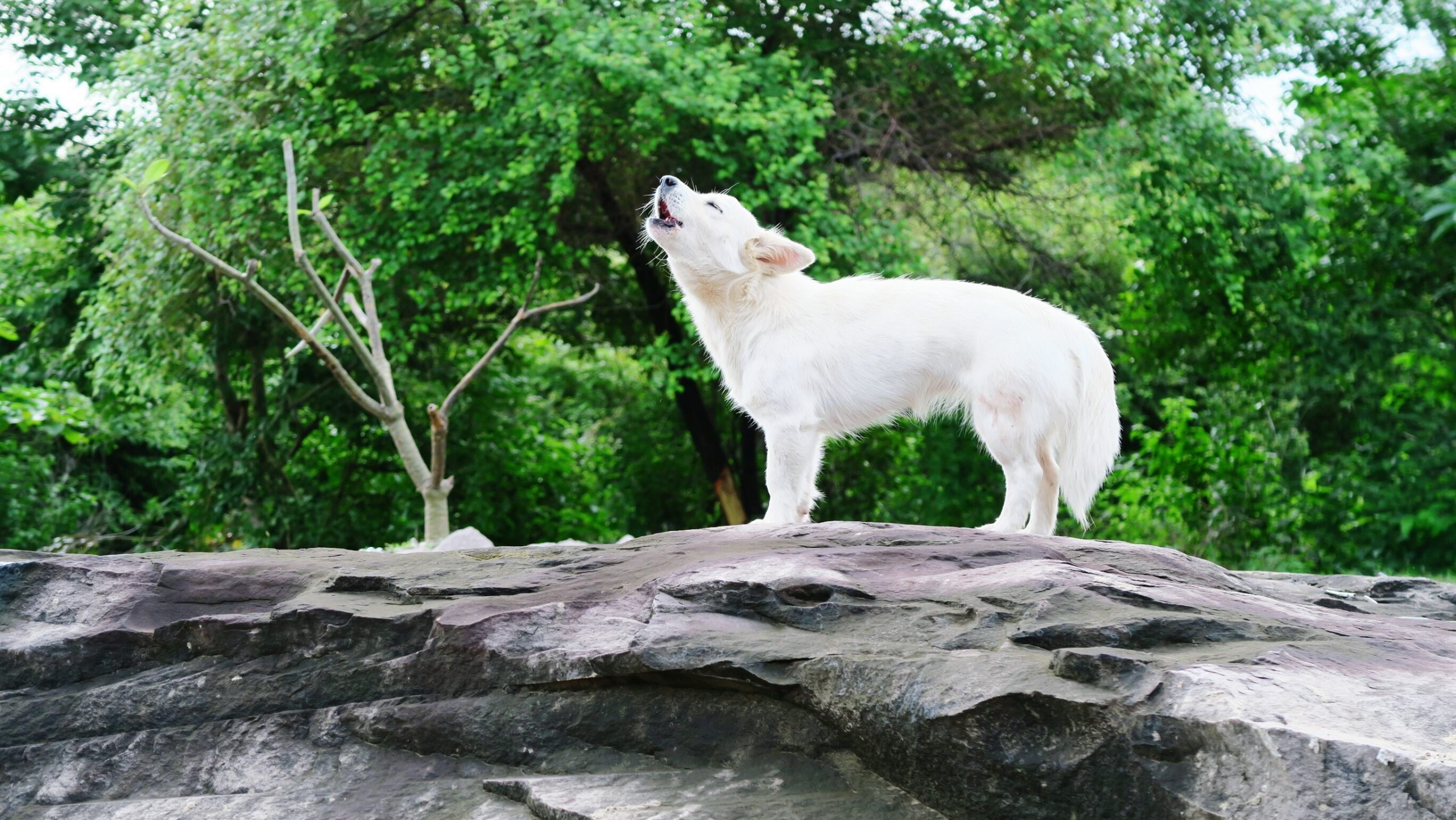What do these different dog sounds mean? Here's what your pooch is really trying to tell you when they make these noises
If you have a dog, you know that there’s lots of ways they communicate with you. But what do all the different dog noises mean?


Parenting advice, hot topics, best buys and family finance tips delivered straight to your inbox.
You are now subscribed
Your newsletter sign-up was successful
If you have a dog, you know that there’s lots of ways they communicate with you to tell you when something is wrong or when they want something.
But unfortunately we haven’t managed to find a way to talk directly to our canine pals just yet, so here’s a handy guide with expert advice on what the three main dog noises mean.
What do these dog noises mean?
Barking
Sometimes dogs bark because they are feeling threatened but other times they are actually trying to get us to move closer to them. According to Stanley Coren Phd, talking to Psychology Today, a low-pitch bark indicates aggression. They are angry or being threatening, which means it’s best to take a couple of steps back.
However, a high-pitch bark means the opposite. If your dog is making a high-pitched barking sound, they’re being friendly and want you to move closer.
Similarly, if the barking comes in short and sharp bursts, your dog is excited and wants to convey a sense of urgency. Perhaps someone is coming to the door or there is a situation developing elsewhere. Whereas a dog barking occasionally is likely just interested in something unimportant.

Growling
Many people assume that dog noises like growls means the dog is being aggressive. That’s not always the case, according to Purina. Dogs growl simply to communicate their emotions, so the most important thing is to pay attention to the situation that your dog is in.
There are three types of growling:
Parenting advice, hot topics, best buys and family finance tips delivered straight to your inbox.
- Pleasure growling: Although dogs don’t purr the same way cats do, you may have noticed the low rumbling sound they make upon occasion. It normally lasts longer than other growls…and it probably happens when you’re rubbing their tummy!
- Frustrated growling: To a stranger, this type of growling could look intimidating as it often occurs when the dog is anxious. But it could happen when you’ve just arrived home, which means they’re just excited to see you.
- Aggressive growling: This type of growling normally comes out in loud and low rumbles. Your dog’s body posture will often change too – their hackles (hairs along the backbone) will stand on end and they might make lunging movements. This might happen because they have seen something to provoke their hunting instincts or you might have encroached on their personal space, so be sure not to encourage this kind of behaviour.
Whining or crying
As with all sounds that dogs make, when a dog whines or cries it often means that they are trying to tell us something. Vetstreet.com tells us that whining, crying or whimpering is both instinctual and learned, as dogs recognise that by letting out a whimper – they are likely to get something they want.
However, whining or crying can also be a sign of more serious conditions. For example, if your dog is older then these kinds of sounds could be indicative of age-related illnesses – such as dementia, disorientation or anxiety.
Whimpering is rarely a sign of chronic pain, like some people might think. While dogs may let out a bark if you step on their tail, it’s important to remember that dogs often don’t display their discomfort when they are suffering from ongoing dental pain, for example.
Howling
You might typically associate howling with wolves, more so than with your adorable pet pooch, but some dogs will naturally howl at all sorts of things. So what does it mean?

Generally, it's thought that dogs use howling to communicate with their pack. For a pet pup, this usually means you and your family. So your dog may be trying to call out to you - especially if they mostly howl when left alone in the house.
Some dogs also howl simply when they hear other dogs howl, whereas others never howl. It's different with every dog, but some breeds are more likely to howl, such as siberian huskies.
Sighing
If you've got a pet pooch, this sighing or groaning sound may well be familiar!
Dogs will often sigh or groan when they settle down, and normally, it's out of contentment, or tiredness, just as we might do when we flop down on the sofa.
However, sometimes this sigh can be out of irritation - for example, if your pup flops down after staring at you for food, they may be upset that they've not got what they want!

Grace Walsh is a health and wellbeing writer, working across the subjects of family, relationships, and LGBT topics, as well as sleep and mental health. A digital journalist with over six years experience as a writer and editor for UK publications, Grace is currently Health Editor for womanandhome.com and has also worked with Cosmopolitan, Red, The i Paper, GoodtoKnow, and more. After graduating from the University of Warwick, she started her career writing about the complexities of sex and relationships, before combining personal hobbies with professional and writing about fitness.